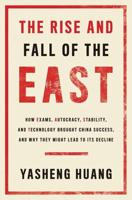Publisher's Synopsis
This book explores time use, time policy, well-being and sustainable development using concepts and findings from time policy research, socio-ecological sustainability research, behavioral economics, consumer research, and research into prosperity and "the good life". Because any change in time structures, whether opening or working hours, school or travel times, has large scale impacts on other times that should ideally be recognized, the political and social restructure and negotiations for more effective time policy must include cross-cutting issues in the relevant sector policies - family, health, consumer, diet, environment, education, technology, transport, urban and labor market policy - and develop time policy strategies and instruments specific to each sector. This book is an interdisciplinary look into how society and government structure time policy, the procedural component of and possibility of a transformation or improvement in time-use, i.e. the "how" of change, what are transformation processes, how can they be explained, and how can change processes be ideally shaped? This book outlines the possibility of a transformation to sustainability in time policy. It will be of interest to researchers in economics, social and political science, social policy, government, quality of life studies, and education.










